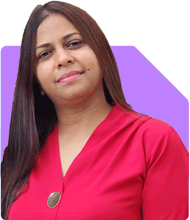Ramalingam Kalirajan |2476 Answers |Ask -Follow
Mutual Funds, Financial Planning Expert - Answered on Apr 30, 2024
He has an MBA in finance from the University of Madras and is a certified financial planner.
He is the director and chief financial planner at Holistic Investment, a Chennai-based firm that offers financial planning and wealth management advice.... more

I have surplus amount 30 lakhs and I like to invest for long time (more than 12 years) . Suggest me to invest in mutual fund. My existing mutual fund portfolios(SIP-50000)are Nippon India small cap,canara robeco small cap,Uti nifty 50 index,parag parik flexi cap,pgim India midcap.
Considering your appetite for long-term growth, you might want to explore options like large-cap funds for stability, alongside diversified equity funds for broader exposure. Have you considered the potential benefits of adding an international equity fund to your portfolio for global diversification?
Furthermore, given your inclination towards small and mid-cap funds, it's important to balance risk with potential returns. Are you prepared for the volatility associated with these segments of the market?
As a Certified Financial Planner, I encourage you to assess your risk tolerance and investment objectives carefully. While high-risk investments may offer higher potential returns, they also come with increased volatility. Diversification across various fund categories can help mitigate risks while aiming for long-term growth.
Remember, the key to successful investing lies in patience, discipline, and a well-diversified portfolio tailored to your individual goals. With careful consideration and guidance, your surplus amount has the potential to grow significantly over the next 12 years and beyond.
You may like to see similar questions and answers below
Omkeshwar Singh | Answer |Ask -Follow
Head, Rank MF - Answered on Jul 11, 2022
Nikunj Saraf |308 Answers |Ask -Follow
Mutual Funds Expert - Answered on Apr 28, 2023
Ramalingam Kalirajan |2476 Answers |Ask -Follow
Mutual Funds, Financial Planning Expert - Answered on Apr 12, 2024
Ramalingam Kalirajan |2476 Answers |Ask -Follow
Mutual Funds, Financial Planning Expert - Answered on May 15, 2024
Nidhi Gupta |149 Answers |Ask -Follow
Physiotherapist - Answered on May 17, 2024
Nidhi Gupta |149 Answers |Ask -Follow
Physiotherapist - Answered on May 17, 2024
Nidhi Gupta |149 Answers |Ask -Follow
Physiotherapist - Answered on May 17, 2024
Chocko Valliappa |237 Answers |Ask -Follow
Tech Entrepreneur, Educationist - Answered on May 17, 2024
Chocko Valliappa |237 Answers |Ask -Follow
Tech Entrepreneur, Educationist - Answered on May 17, 2024
Chocko Valliappa |237 Answers |Ask -Follow
Tech Entrepreneur, Educationist - Answered on May 17, 2024
Chocko Valliappa |237 Answers |Ask -Follow
Tech Entrepreneur, Educationist - Answered on May 17, 2024
Ramalingam Kalirajan |2476 Answers |Ask -Follow
Mutual Funds, Financial Planning Expert - Answered on May 17, 2024
Ramalingam Kalirajan |2476 Answers |Ask -Follow
Mutual Funds, Financial Planning Expert - Answered on May 17, 2024
Ramalingam Kalirajan |2476 Answers |Ask -Follow
Mutual Funds, Financial Planning Expert - Answered on May 17, 2024























.jpg)

